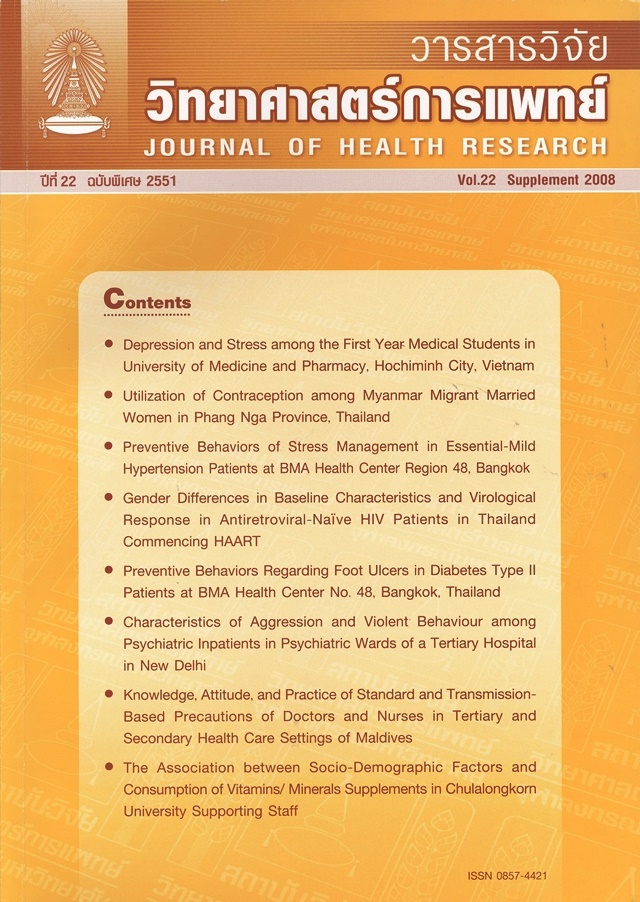The Association between Socio-Demographic Factors and Consumption of Vitamins/Minerals Supplements in Chulalongkorn University Supporting Staff
Keywords:
Chulalongkorn University, Demographic factors, Vitamin and Mineral supplement consumption, Supporting staffAbstract
This research is aimed to measure the association between socio-demographic factors and vitamins or mineral supplement consumption among Chulalongkorn University supporting staff members. Data collection process was done by random sampling but based on a structured method. The data collection process was done by tallied the total number of supporting staff population at Chualongkorn University and the number of supporting staff at each faculty, the percentage of the faculty’s contribution was then calculated to the population size. A total of 324 supporting staff were included in the study, including males and females, were selected based on random sampling. The results of the study showed that the age range was 21-50. The majority of the study population consists of females, which constituted 66.7 percent and males 33.3 percent.Most of the study population was well educated and had a bachelor degree in any related field (63.9 percent). A structured questionnaire was distributed including: socio-demographic factors, knowledge of vitamins and minerals, attitude toward vitamins or mineral supplements and practice of vitamins and mineral supplements. That there was no significant difference in the knowledge score between consumers and non-consumers (p=0.082), while there was a significant association between the attitudes of consumer and non-consumer towards vitamins and mineral supplements (p=0.047). Out of the total of 324 supporting staff that were studied at Chulalongkorn University, a total of 106(32.7%) of them were currently consuming vitamins or mineral supplements, while 173 (79.35%) of the non-consumers were willing to consume vitamins or mineral supplements in the nearby future. There was an association between education and consumption of vitamins and mineral supplements (p=0.044), although there was no association between income and vitamin or mineral supplement consumption (p= 0.423). There was no significant association for lifestyle behavior such as alcohol (p=0.959), exercise (p=0.084) and smoking (p=0.302), with vitamin or mineral supplement consumption in the sampled supporting staff members at Chulalongkorn University. The results showed that the main reason for consumption of vitamin or mineral supplement was “To preserve and maintain good health (33.33%), while deciding to consume vitamins or minerals supplements had came from the media (8.95%). Further studies, will look at the knowledge, attitude and practice of vitamins or mineral supplements in teenagers.







